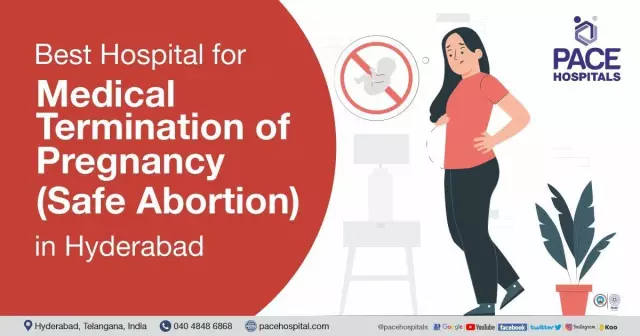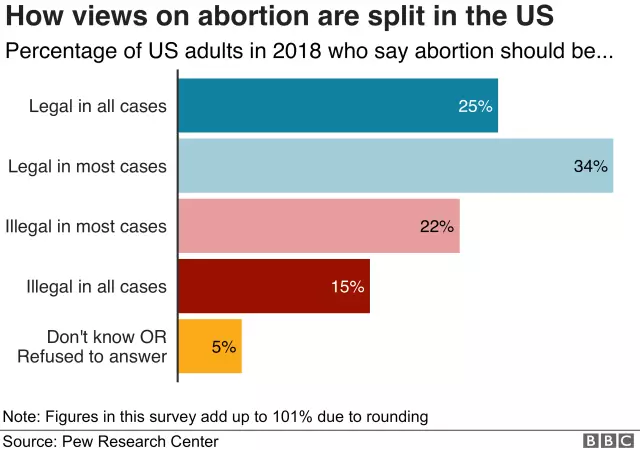- Author Rachel Wainwright wainwright@abchealthonline.com.
- Public 2023-12-15 07:39.
- Last modified 2025-11-02 20:14.
Vacuum mini abortion

Vacuum mini abortion is a medical procedure for early termination of pregnancy using a vacuum aspirator. This type of abortion is also called vacuum aspiration or mini abortion. This procedure is the most preferable due to its safety, gentle execution technique and high efficiency. At what stages of pregnancy can a mini abortion (vacuum aspiration) procedure be performed? How to have a vacuum abortion? What is the technique for performing vacuum abortion?
Vacuum mini abortion: advantages of the procedure, indications, contraindications
Vacuum mini abortion is an early abortion procedure widely used due to its advantages. Unlike traditional surgical abortion (dilation and curettage (curettage) or dilatation (expansion of the cervix) and evacuation), vacuum mini abortion is performed according to a different scheme using pressure, which avoids mechanical damage to the tissues of the uterine cavity and cervix. The main advantages of the procedure include:
- The duration of a mini abortion (vacuum abortion) does not exceed 10 minutes. In rare cases, if complications occur during the abortion, the duration of the procedure can increase up to 30 minutes. Complications of this kind include instability of the patient's condition, a sharp deterioration in her condition, severe bleeding;
- Carrying out the procedure for ultrasound monitoring, which eliminates the error of doctors and significantly increases efficiency;
- In the absence of contraindications, vacuum mini-abortion can be carried out under conditions of drug sleep (general anesthesia);
- If a woman has already given birth, then the procedure does not require an expansion of the cervix. When carrying out a mini abortion, a nulliparous woman may need dilatation, however, in this case, the cervix is not injured in the same way as it happens with the expansion of the cervical canal during traditional surgical abortion;
- Fast healing and recovery process;
- Minimal risks to a woman's health;
- Low likelihood of complications;
- High efficiency.
There are a number of medical indications for a mini vacuum abortion, which include:
- Frozen pregnancy, anembryonia;
- Abnormalities in fetal development;
- Threat to the mother's life;
- The presence of infectious and parasitic diseases that can negatively affect the development of the fetus (all forms of tuberculosis, hepatitis, syphilis, HIV, rubella and contact with infection in the first trimester of pregnancy);
- Malignant neoplasms (or existing in the past) of any localization;
- Endocrine system diseases;
- Diseases of the blood, hematopoietic system;
- Mental disorders are incompatible with a person's normal life;
- Diseases of the nervous system;
- Congenital malformations;
- Forced intake of embryo- and fetotoxic drugs.
It should be noted that in many cases the indications for abortion are debatable. In a situation where pregnancy puts a woman's body and life at risk, it is always necessary to balance the risks. Many diseases are indirect indications for abortion. However, it is worth remembering that many malformations caused by certain disorders in the mother's body can appear in the fetus in late pregnancy, when interruption will be impossible.
Contraindications to a mini vacuum abortion are:
- The presence of infections in an acute form, which increases the risk of transferring the infection to the genital tract and the development of complications after the procedure. With a timely appeal to the gynecologist for a mini abortion (vacuum aspiration), the patient undergoes treatment for an infectious disease before the procedure;
- Ectopic pregnancy - the localization of the ovum outside the uterine cavity, which will not allow the aspirator to reach the implantation site and produce detachment and suction of the fetus;
- Poor blood clotting;
- Labor activity within the last 6 months;
- Unconfirmed pregnancy (pregnancy determined by home test)
- A period of more than 6 weeks - WHO allows up to 12 weeks for vacuum abortions with proper qualifications of doctors, however, after 6 weeks of gestation, a strong connection of the chorion and the walls of the uterus is formed, which complicates the process of detachment of the ovum and its extraction from the uterine cavity.
Abortion technique
To conduct a vacuum mini abortion, the patient must undergo an initial examination by a gynecologist to confirm the fact of pregnancy and its localization. A woman must pass a number of tests that determine the state of her health and make it possible to exclude contraindications for the procedure (general blood test, urine, blood clotting, hCG, smear to determine the vaginal flora, tests to detect diseases of the genitourinary system, HIV, hepatitis).
Vacuum mini abortion is performed in a hospital setting. Depending on the condition of the woman, both local anesthesia and general anesthesia are used for the procedure. A special tube (cannula) is inserted into the uterine cavity, with the help of an aspirator, a uniform negative pressure is created in the cavity, which promotes detachment and suction of the ovum. The procedure takes place under ultrasound control, which allows you to accurately localize the fetus. Vacuum mini abortion does not injure the endometrium and the vessels of the uterine cavity, which contributes to rapid recovery, and also reduces the risk of developing other complications. It is much safer to have a vacuum abortion than to terminate the pregnancy with traditional curettage. The absence of the need to expand the cervix reduces the risk of developing cervical-cervical insufficiency,which is one of the main causes of miscarriage.
Vacuum abortion: terms, guarantees, consequences

To have a vacuum abortion, the gestational age should not exceed 6 weeks, until strong bonds between the ovum and the uterine wall are formed. With vacuum abortion, the timing of the procedure also increases the guarantee of complete termination of pregnancy. According to statistics, up to 5% of vacuum mini-abortions are completed with incomplete interruption, which requires additional curettage.
Before having a vacuum abortion, a woman must understand what the consequences of such a procedure may be:
- Habitual miscarriage, infertility;
- Inflammatory processes in the uterine cavity;
- Infection during the procedure;
- Violation of the menstrual cycle;
- Uterine bleeding;
- Incomplete abortion or live pregnancy (developing).
Vacuum mini abortion is positioned as the least dangerous early termination of pregnancy, but do not forget that such an abortion is a full-fledged surgical intervention that disrupts the natural process of a woman's life cycle and the development of a new life in her womb. No doctor can provide a 100% guarantee of the successful procedure and the preservation of the woman's physiological ability for subsequent conception.
Found a mistake in the text? Select it and press Ctrl + Enter.






